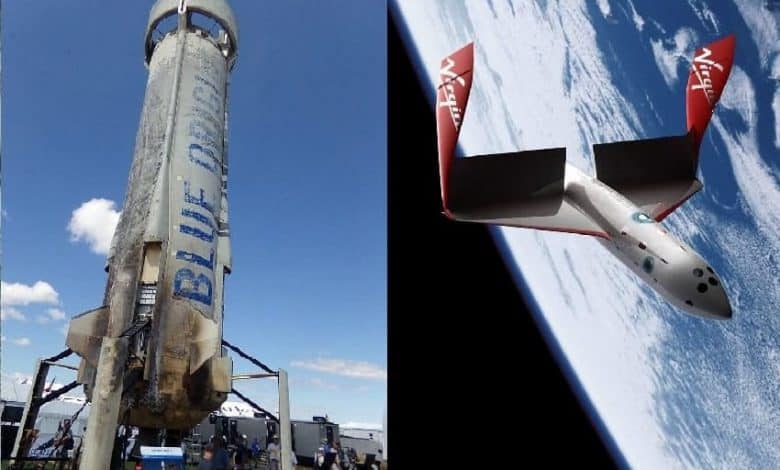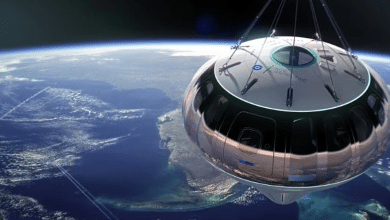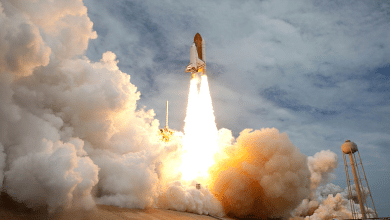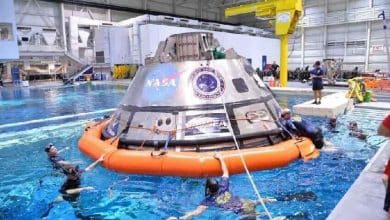Blue Origin vs Virgin Galactic technology: Which Commercial Space Travel Company Will Make The Most Difference?

The Commercial Space Travel Race Between Blue Origin & Virgin Galactic Technology
Virgin Galactic and Blue Origin are two of the most popular private space tourism companies with emerging technologies in the world. But what’s the difference between the two? Virgin Galactic is a commercial space travel company which is owned by Richard Branson, who has been found of space tourism himself. This space tourism company has a more traditional business model of creating tourism opportunities to space. It also sells suborbital flights that take passengers up to Mach 3 (3 times the speed of sound) for $250,000 per space tourist. On the other hand, Blue Origin was founded by Amazon CEO Jeff Bezos in 2000. Rather than focusing on selling tickets for trips into space, it focuses on developing infrastructure for future missions and making money from unmanned rocket launches and satellite launches.
The Virgin Galactic Spaceship Two and the Blue origin New Shepard are making strides in the space tourism. The New Shepard has a test flight that reached more than 100 km above the surface of earth while the Spaceship Two took its first passenger flight earlier this year.
Both companies have different approaches to take tourists into space, but they both use emerging technologies to achieve their goals. There is no clear winner yet as each space Tourism Company has their own advantages and disadvantages that could be advantageous when combined with other companies’ technology in the future.
The differences between the two make it hard to compare them, but here are some ways to compare these two programs.
What is the difference?
The blue origin competing against virgin galactic in the commercial space travel industry is primarily because they have more experience in launching rockets than virgin galactic has.
Purpose
Blue origin is a rocket company that has the goal of reducing the cost of access for space tourism . They are developing rockets in order to provide cost-effective and safe transport for people and cargo. Meanwhile, virgin galactic is a commercial space travel company that has the goal of democratizing space. Virgin Galactic has developed a spacecraft capable of carrying six passengers on suborbital journeys into space and back.
The goals of blue origin and virgin galactic are very different, even though they both involved space tourism. One wants to cut the cost while the other is committed to democratizing it – with this types of technology for space tourism, which one’s goal do you think best aligns with yours?
Altitude
With the increase in technology development, the commercial space travel company, Virgin Galactic’s first model, SpaceShipOne was designed to take three people for space tourism and back at a maximum altitude of 328,000 ft (100 km). & Virgin Galactic’s second model, SpaceShipTwo can carry six space tourists or two pilots on an 18-mile (30 km) suborbital journey into space and back to Earth. While this might sound impressive in comparison with Blue Origin’s human flight up 66.5 miles on Jeff Bezos’ personal flight
Virgin Galactic has not gone higher than 62 miles according international standard for going into space.The Kármán line that was created by Hungarian scientist Theodore von Kármán who calculated where atmospheric drag would become too much for any aircraft or spacecraft. This means that this commercial space travel company cannot claim its achievements as being about more than just business ventures without taking risks; rather it will be showing these off when their latest model reaches complete success!
Vehicle Type
Blue Origin has developed several vehicles as well, including the Charon prototype, named after Pluto’s moon.
Goddard followed it which was later retired and replaced by New Shepard rocket which carried Jeff Bezos and William Shatner for their space tourism. Other vehicles in development include the New Glenn, New Armstrong (named for Neil), and The Blue Moon Lunar Lander (named for Apollo 11). Only one of these is operational: the new Shephard rocket.
In contrast, Virgin Galactic, the commercial space travel company operates a craft called SpaceShipTwo or VSS Unity instead of having their own rockets like many other organizations do . SpaceShipTwo is a six-person spaceplane that carries people into suborbital flight and back to Earth. They are launched from WhiteKnight Two or VMS Eve mid-air. So far they have only one operational aircraft but plan to release another called SpaceShipThree.
How they make money
With the interest in technology development, Virgin Galactic being a commercial space travel company has had more success with its space tourism model, but Blue Origin is doing well because it doesn’t have to spend as much time marketing itself to the space tourist. Blue Origin is able to focus solely on its technological advancements while commercial space travel company (Virgin Galactic) is still struggling to find someone who will buy their $250,000 tickets into space. This leaves us wondering: which of these companies will be successful first?
The publicly traded company reported an operating loss of $275 million in 2020 and lost another $213 million in 2019 after generating revenues of $715 thousand last year.
Though the company has had a net loss of $130 million in its most recent quarterly results, it is not faring too poorly when compared to other companies.With privately owned Blue Origins looking for government contracts and competing with Elon Musk’s SpaceX, they have been able to receive over 2 billion dollars worth of work from NASA and the Pentagon in just 14 federal fiscal years.
Automation
When it comes to automation, the technology evolution comes to our mind. In this portion of technology evolution, the rocket company: Blue Origin technology is more advanced than the commercial space travel company, Virgin Galactic. Blue Origin’s vehicles are fully automated, and they can detach from the earth-launched rocket during flight after landing back on Earth with the help of parachutes. The Virgin Galactic spaceplane has no such form of automation; pilots manually operate it while flying into space and then glide it back down to Earth before landing on a runway like an ordinary airplane.
Speed
Blue Origin’s new Shepard rocket reached a maximum speed of 2,234 mph and greatest altitude of 66 miles (106 km). On the other hand, new technology of commercial space travel company, Virgin Galactic’s VSS Unity has reached a top speed of 2,300 mph and a maximum height of 53.5 miles above the Earth.
Fight Duration
Since Blue Origin is quite new to this game they have only managed flights up to 10 minutes in duration from launch to landing back on earth. This compares well with the commercial space travel company Virgin Galactic who have had longer than that flight time at 15 minutes but their longest flight was still less than half as long as Blue Origins’ at just about two hours in total for an average spaceflight lasting about 15-20 mins max which means more time spent on board potentially risking your own health or safety should anything go wrong during that timeframe including things like decompression sickness incurred when returning from high altitudes quickly without suitably slow descent rates .
Safety Record
Both space travel companies have suffered many accidents as they developed and tested their vehicles. Thankfully, there has never been a fatality or serious injury from the public in any of these incidents. As for Blue Origin’s crew members, there has never been anyone who identified themselves as an employee at that company who was harmed by one of their experiments.
Sadly, Virgin Galactic has had its fair share of accidents. There were two incidents in 2007 and 2014 that left many space tourist with injuries. In the first incident, three employees died during ground tests for SpaceShipTwo’s engines when Scaled Composites- the company who built Virgin Galactic’s spaceplane – was acquired by them. Three others were wounded in this same accident as well. The other incident occurred on a test flight in 2014; one pilot dies while another is injured but recovers later safely after landing the plane without any fatalities or major injuries to passengers aboard (unfortunately). More recently, Richard Branson’s 2021 flight was dangerously went out of orbit, but recovered and landed safely!
Costs
The commercial space travel company,Virgin Galatic had previously sold tickets at $250 000 apiece but stopped after halting all flights following an unfortunate event back in 2014 where one pilot dies and another gets seriously injured during a tragic crash on their first spaceflight test run – which caused it to halt operations until more recent events.
Fortunately with the new technology’s advantages, Richard Branson has not been deterred from his mission to provide commercial access to suborbital flights into space; after completing its fully crewed flight test on July 2021 with no casualties he re-opened ticket isales for its future missions at a starting price of $450 000 per seat with plans for more tickets as demand increases. The company is also selling tickets for microgravity research and professional astronaut training, each costing $600,000.
The price of a ticket on Blue Origin’s first crewed flight in July 2021 was auctioned off at $28 million with half the proceeds going to various space organizations.
It has not yet been announced what the price of a ticket could be on future flights but it seems that actor Tom Hanks may have confirmed this amount when he said Jeff Bezos offered him a ride on New Shephard for “$28 million.”
Conclusion
So, which one is better?
The only way to know the answer to this question is to first know what you want. If you want a company that is privately owned, then commercial space travel company, Virgin Galactic is the company for you. If you want more information on the technology behind the company and where they are headed, then Blue Origin is the company for you. The answer depends on what you are looking for.





